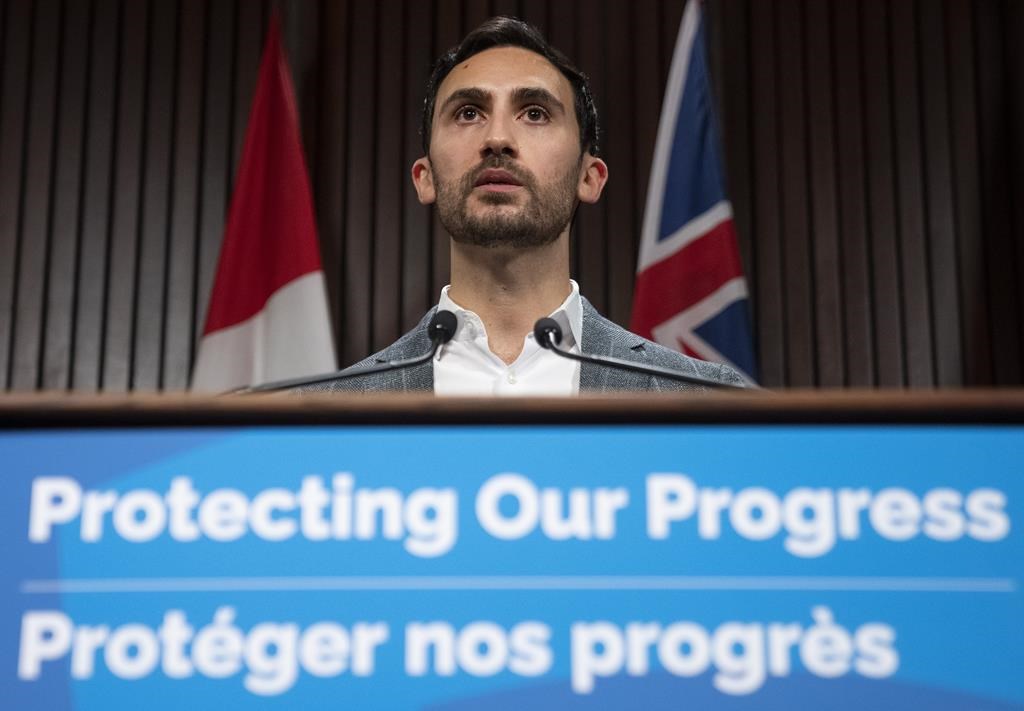TORONTO — Ontario is offering to give education workers who make less than $40,000 raises of two per cent a year, and 1.25 per cent for everyone else in a proposed four-year deal.
The proposal, tabled Monday in bargaining with the Canadian Union of Public Employees, marks the first indication of what the Progressive Conservative government is looking for in deals also being negotiated with the four major teachers’ unions.
The previous contracts were subject to legislation known as Bill 124, introduced by the government in 2019, that capped wage increases to one per cent a year for three years for public sector workers.
Premier Doug Ford said recently that the government would be offering more than one per cent this time, and CUPE’s Laura Walton said she and her colleagues had actually joked that would mean 1.25 per cent.
“Given the inflation as it is, this is actually a pay cut to these education workers,” said Walton, the president of CUPE’s Ontario School Board Council of Unions.
She said it amounts to an extra $800 a year for the average worker making $39,000.
CUPE and other unions have said they are pressing for increases to both compensate for the wage restraint as well as to address the rising cost of living. Statistics Canada said the annual inflation rate in June was 8.1 per cent.
CUPE represents 55,000 workers including early childhood educators, school administration workers, bus drivers and custodians. Deals for the five major education unions expire Aug. 31 and the terms of the first deal struck in a round of bargaining often set the standard for the rest.
CUPE has asked the province for annual wage increases of 11.7 per cent – or $3.25 per hour – arguing workers’ wages have been restricted over the last decade and inflation is expected to rise further.
Education Minister Stephen Lecce said in a statement that the government’s proposal is reasonable, fair and provides stability.
“As students return to normal classes this September with the full school experience, including sports and extracurriculars, we are committed to landing a fair deal with all education unions, and a good deal for Ontario students and their families,” he wrote.
A four-year deal, as proposed, instead of three, would ensure the subject of education bargaining doesn’t come up again before the next scheduled election in 2026.
A spokeswoman for Lecce noted that CUPE is also asking for five additional paid days before the start of the school year, 30 minutes of paid preparation time each day, and increasing overtime pay from a multiplier of 1.5 to 2.
If the terms of CUPE’s proposal was applied to all education contracts, it would cost taxpayers $21.8 billion over the proposed three years, Caitlin Clark said in a statement.
Walton said additional prep time before the school year would allow staff time to review protocol and get trained so they are ready to go on the first day. In teacher-early childhood educator teaching teams, for example, Walton said teachers have time to prepare but the ECEs don’t.
CUPE is planning to discuss strike votes at a meeting next week, which Lecce has called “needless escalation,” as the agenda was set before the government even tabled its first offer.
This report by The Canadian Press was first published Aug. 15, 2022.



